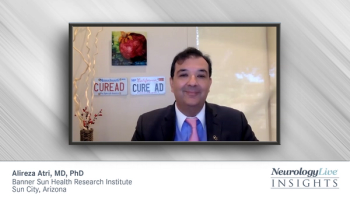
Alireza Atri, MD, PhD, discusses aducanumab’s recent FDA approval for the treatment of AD.

Alireza Atri, MD, PhD, discusses aducanumab’s recent FDA approval for the treatment of AD.

An expert explains the role biomarker testing plays when diagnosing a patient with AD.
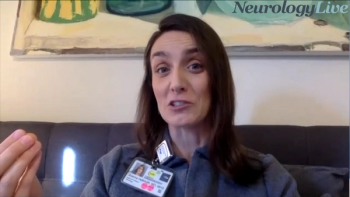
The cognitive neurologist at the University of California, San Francisco discussed a specific analysis that evaluated differences in cerebrospinal fluid in patients who develop cognitive changes following COVID-19 infection. [WATCH TIME: 6 minutes]
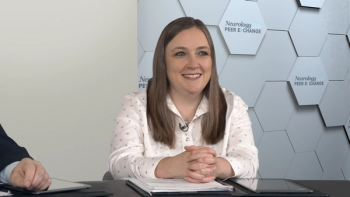
Shared insight on the pharmacologic treatment landscape of insomnia, with a focus on mainstay drug classes.
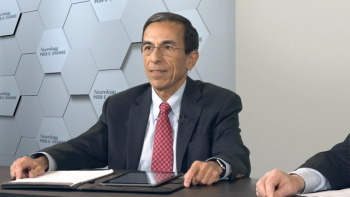
Focusing on the pharmacologic setting of insomnia, experts consider when it is best to initiate therapy.
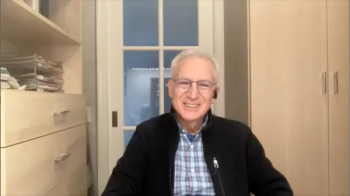
Discussing recent technological advancements in the AD field, the founding executive director of the Alzheimer’s Drug Discovery Foundation noted the doors that these innovations have opened. [WATCH TIME: 4 minutes]

The founding executive director of the Alzheimer’s Drug Discovery Foundation commented on the potential to detect patients at-risk for Alzheimer disease at an earlier age. [WATCH TIME: 4 minutes]

Neurology News Network for the week ending January 29, 2022.
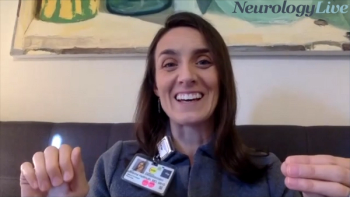
The cognitive neurologist at the University of California San Francisco discussed whether Alzheimer disease is a realistic fear for patients who’ve contracted COVID-19. [WATCH TIME: 5 minutes]

The founding executive director of the Alzheimer’s Drug Discovery Foundation spoke on the potential of drugs in the neuroprotection class for treatment of patients with AD. [WATCH TIME: 5 minutes]
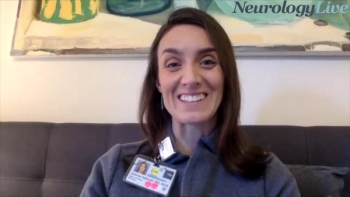
The cognitive neurologist at the University of California, San Francisco discussed the complexities in characterizing milder cognitive disorders and the need for more tailored assessments for these patients. [WATCH TIME: 8 minutes]

The founding executive director of the Alzheimer’s Drug Discovery Foundation spoke on the data and developments he is looking forward to seeing in 2022. [WATCH TIME: 3 minutes]
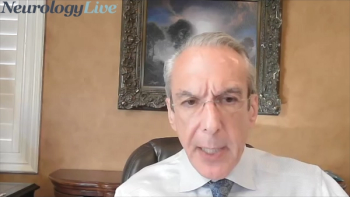
The director of the Chambers-Grundy Center for Transformative Neuroscience at the University of Nevada, Las Vegas discussed how the momentum gained within the Alzheimer community can springboard success going forward. [WATCH TIME: 4 minutes]

The director of the Pediatric Headache Program at CHOP spoke on the challenges associated with clinical trials in pediatric migraine, further discussing the biggest advance made amid the COVID-19 pandemic. [WATCH TIME: 6 minutes]

Dr Atri lists the common screening tools used to form an AD diagnosis.

Alireza Atri, MD, PhD, describes the pathophysiology of Alzheimer’s disease (AD).

The research director and staff scientist at Cleveland Clinic’s Epilepsy Center detailed the clinical pre- and post-surgery benefits patients with epilepsy get from MR fingerprinting. [WATCH TIME: 3 minutes]
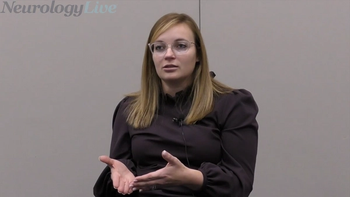
The staff epileptologist at Cleveland Clinic’s Epilepsy Center discussed new untapped ways seizure apps could help patients with epilepsy. [WATCH TIME: 2 minutes]
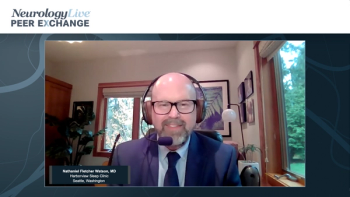
Panelists review suboptimal over-the-counter medications that patients may use to manage insomnia.

The cognitive neurologist at the University of California San Francisco provided insight on how she’s taken a cognitive neurology approach to the COVID-19 pandemic, and how her background in HIV influenced her recent research. [WATCH TIME: 5 minutes]
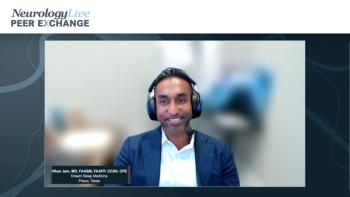
A brief discussion on the use of mind and body practices to aid in the management of insomnia.

The director of the Pediatric Headache Program at CHOP commented on the need to treat migraine early to avoid secondary effects and decrease the odds of long-term disability. [WATCH TIME: 3 minutes]

Neurology News Network for the week ending January 22, 2022. [WATCH TIME: 4 minutes]

Discussing the need to identify an effective first-line treatment, the director of the Pediatric Headache Program at CHOP further discussed treatment adherence in this patient population. [WATCH TIME: 5 minutes]
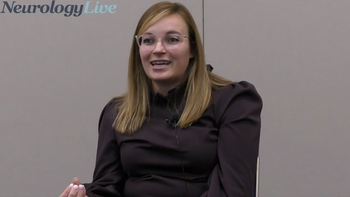
The staff epileptologist at Cleveland Clinic’s Epilepsy Center gave her expert opinion on whether seizure app usage has increased during the COVID-19 pandemic and why there remains a need for further data collections. [WATCH TIME: 2 minutes]

The director of the Pediatric Headache Program at CHOP commented on the available therapies for children with migraine, as well as future developments. [WATCH TIME: 4 minutes]

The director of the Pediatric Headache Program at CHOP broke down the treatment of pediatric migraine into 3 different pieces: lifestyle habits, acute treatment, and preventive therapies. [WATCH TIME: 5 minutes]

The director of the CHOP Pediatric Headache Program commented on the commonality of migraine in children and the need to improve diagnostic practices. [WATCH TIME: 4 minutes]
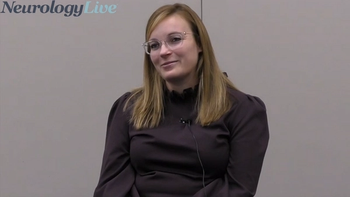
The staff epileptologist at Cleveland Clinic’s Epilepsy Center detailed the benefits seizure apps provide for patients with epilepsy, as well as the barriers that limit them. [WATCH TIME: 3 minutes]

The professor of neurology at NYU Langone Grossman School of Medicine discussed future research for neurological complications in patients hospitalized with COVID-19 infection. [WATCH TIME: 4 minutes]